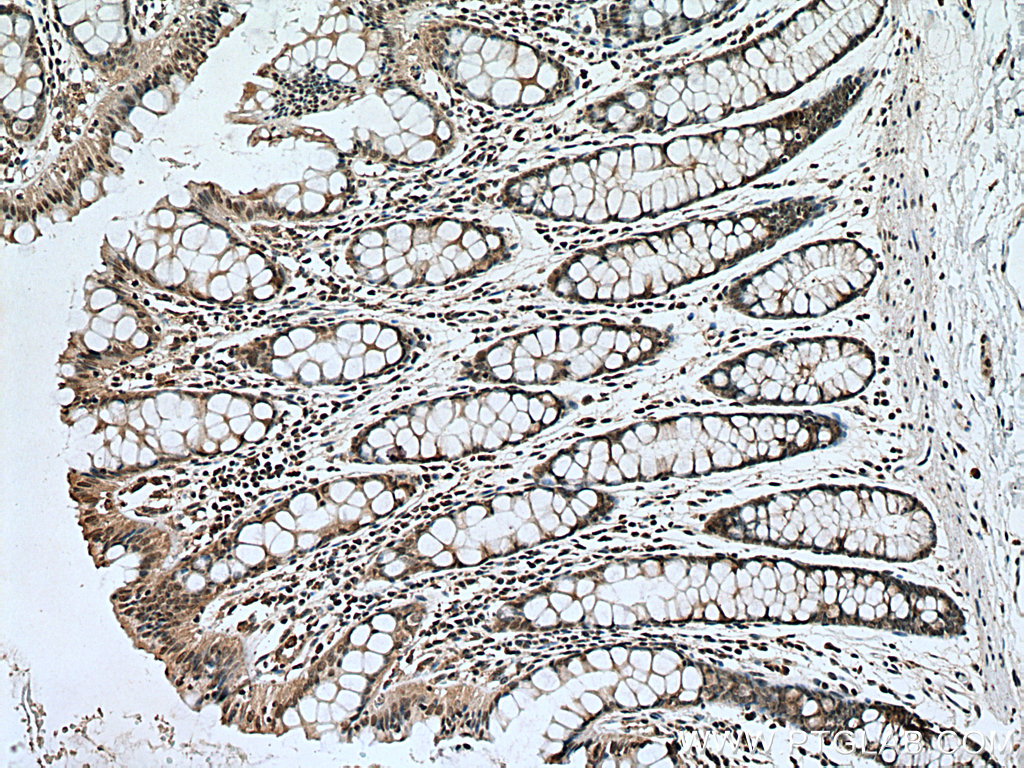验证数据展示
产品信息
67644-1-PBS targets PI3 Kinase p85 Beta in WB, IHC, IF/ICC, Indirect ELISA applications and shows reactivity with Human, Mouse, Rat samples.
| 经测试应用 | WB, IHC, IF/ICC, Indirect ELISA Application Description |
| 经测试反应性 | Human, Mouse, Rat |
| 免疫原 | PI3 Kinase p85 Beta fusion protein Ag14369 种属同源性预测 |
| 宿主/亚型 | Mouse / IgG2b |
| 抗体类别 | Monoclonal |
| 产品类型 | Antibody |
| 全称 | phosphoinositide-3-kinase, regulatory subunit 2 (beta) |
| 别名 | p85, p85 BETA, P85B, PI3 Kinase p85 Beta, PI3 kinase subunit p85 beta, PI3K regulatory subunit beta, PIK3R2 |
| 计算分子量 | 728 aa, 82 kDa |
| 观测分子量 | 85 kDa |
| GenBank蛋白编号 | BC014170 |
| 基因名称 | PI3 Kinase p85 Beta |
| Gene ID (NCBI) | 5296 |
| RRID | AB_2882844 |
| 偶联类型 | Unconjugated |
| 形式 | Liquid |
| 纯化方式 | Protein A purification |
| UNIPROT ID | O00459 |
| 储存缓冲液 | PBS only, pH 7.3. |
| 储存条件 | Store at -80°C. The product is shipped with ice packs. Upon receipt, store it immediately at -80°C |
背景介绍
PI3 Kinase p85 is also named as PIK3R2 and belongs to the PI3K p85 subunit family. PI3 Kinase p85 is a regulatory subunit of phosphoinositide-3-kinase (PI3K) which is a kinase that phosphorylates phosphatidylinositol 4,5-bisphosphate to generate PIP3. PI3 Kinase p85 binds to activated (phosphorylated) protein-tyrosine kinases through its SH2 domain, and then acts as an adapter to mediate the association of the p110 catalytic unit to the plasma membrane. It promotes nuclear translocation of XBP1 isoform 2 in a ER stress or insulin-dependent manner during metabolic overloading in the liver and hence plays a role in glucose tolerance improvement (PMID:23604317).




